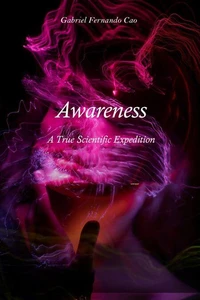The book "Artificial Minds, Human Hearts" explores the fascinating question of whether machines can understand us not just intellectually, but emotionally. It blends science, ethics, and philosophy to examine how AI systems can simulate empathy and what that means for our relationships and the future of society. The book is written in an accessible tone, inviting readers to reflect on the nature of connection in a digital world where algorithms can comfort, respond, and even seem to care.
It offers a unique perspective on how empathy may evolve between humans and the machines we create. The focus of the book "Artificial Minds, Human Hearts" is to explore the question of whether machines can understand humans not just intellectually, but emotionally. It delves into how AI systems can simulate empathy, the implications for relationships and society, and the evolution of empathy between humans and the machines we create.
The book approaches the topic of AI and empathy by blending science, ethics, and philosophy to examine how AI systems can simulate empathy. It explores the implications of this simulation for human relationships, education, healthcare, and society. The book invites readers to reflect on the nature of connection in a digital world where algorithms can comfort, respond, and even seem to care, offering a unique perspective on how empathy may evolve between humans and the machines we create.
The intended audience includes tech enthusiasts, educators, and individuals who are curious about the future of emotion in a digital world. It offers a unique perspective on how empathy may evolve between humans and the machines we create, making it relevant for those interested in the intersection of technology, ethics, and human connection. The aim to explore is whether machines can understand humans not just intellectually, but emotionally.
The book examines how AI systems can simulate empathy and the implications this has for relationships, education, healthcare, and society, as the evolution of empathy between humans and the machines we create unfold. The book takes an interdisciplinary approach, blending science, ethics, and philosophy to offer a unique perspective on this important and fascinating topic.
The book "Artificial Minds, Human Hearts" explores the fascinating question of whether machines can understand us not just intellectually, but emotionally. It blends science, ethics, and philosophy to examine how AI systems can simulate empathy and what that means for our relationships and the future of society. The book is written in an accessible tone, inviting readers to reflect on the nature of connection in a digital world where algorithms can comfort, respond, and even seem to care.
It offers a unique perspective on how empathy may evolve between humans and the machines we create. The focus of the book "Artificial Minds, Human Hearts" is to explore the question of whether machines can understand humans not just intellectually, but emotionally. It delves into how AI systems can simulate empathy, the implications for relationships and society, and the evolution of empathy between humans and the machines we create.
The book approaches the topic of AI and empathy by blending science, ethics, and philosophy to examine how AI systems can simulate empathy. It explores the implications of this simulation for human relationships, education, healthcare, and society. The book invites readers to reflect on the nature of connection in a digital world where algorithms can comfort, respond, and even seem to care, offering a unique perspective on how empathy may evolve between humans and the machines we create.
The intended audience includes tech enthusiasts, educators, and individuals who are curious about the future of emotion in a digital world. It offers a unique perspective on how empathy may evolve between humans and the machines we create, making it relevant for those interested in the intersection of technology, ethics, and human connection. The aim to explore is whether machines can understand humans not just intellectually, but emotionally.
The book examines how AI systems can simulate empathy and the implications this has for relationships, education, healthcare, and society, as the evolution of empathy between humans and the machines we create unfold. The book takes an interdisciplinary approach, blending science, ethics, and philosophy to offer a unique perspective on this important and fascinating topic.

 , qui est-ce ?
, qui est-ce ?